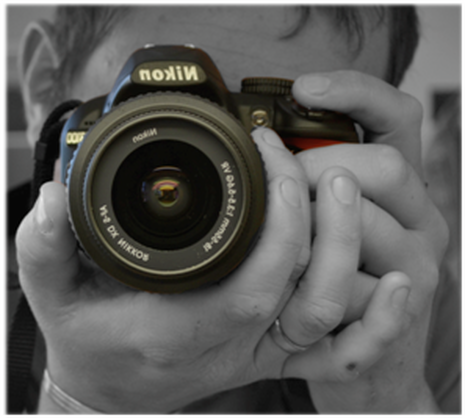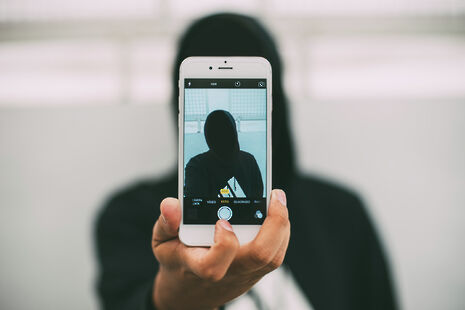Mirror, mirror on the screen…
That most narcissistic of modern phenomena, the selfie, has dramatically altered our notion of identity and has forever changed our sexual politics, writes columnist Sam Brown

In a twenty-first-century reimagining of the classic fairy tale, Snow White’s stepmother wakes up every morning, reaches groggily for her IPhone X and asks Siri: “Mirror, mirror on the screen, who is the fairest that has ever been?” “My Queen,” it replies, “You are the fairest one ever seen.” She is pleased. She is validated. She works quickly to Snapchat a candid photo. Caption reads: “I woke up like this #morningfeelz #notsoGrimm.”
Human beings have forever been obsessed with our own reflections. Viewing oneself in a mirror, in water, or in a shop window is a crucial part of self-actualisation. It helps us to get around the perplexing notion of our own consciousness, merging bodily self with that of our mind. French psychoanalyst Jacques Lacan famously theorised that our fascination with self-image begins early. He argued that the human ego starts forming during the so-called ‘mirror stage’, a period of development beginning when a child first starts to recognise its reflection in a mirror. The child begins to associate the jerky movements of its own body with the idealised image in the mirror, creating the roots of its ego.
“The selfie will irreparably alter this stage in child development”
The selfie will irreparably alter this stage in child development. With one-third of children under two using a smartphone – and hence having easy access to a front-facing camera – psychologists are worried that the ability to capture and manipulate self-portraits at this formative age will breed a generation of extreme narcissists. Similarly, toddler selfies could lead to tomorrow’s teenagers being constantly and anxiously aware of the ‘imaginary audience’, a term used to describe how some avid social media users act like they are being watched even when alone. Had Lacan lived to see our digitally obsessed age, I have no doubt that the ‘selfie stage’ would now be his jargon.
The screen thus serves as the modern mirror, and social media is the means by which your own Lacanian ego becomes advertised to your peers. Through the profile picture, you can now see, snap, and share your ‘unified’ and ‘stable’ self with the online community, in effect an alter ego which is mobile and malleable. As we all know, however, behind the perfect ‘pp’ lies a fragmented ego, with multiple selves vying for supremacy, but it is simple human nature to continue the façade regardless. Perfecting one’s public self is, of course, not a recent craze: rulers from Cleopatra to Kim Jong-un have manipulated self-portraiture to enhance perceived power and sexual appeal. Yet, with the selfie, this ability to alter how people view your ego reaches new heights.
“Excessive selfie sharing led to less intimacy in ‘real world’ relationships and interactions”
While posting affirming selfies may be empowering to some by readjusting the industry beauty standard, to others it is epitome of narcissism and can breed unhealthy social habits. For example, a quick perusal of DJ Khaled’s Snapchat exploits suggests that avid selfie-takers and bloggers have an inflated sense of self and view their pictures as mapping out a form of daily ‘reality television’ for their viewers. In turn, a study by academics Jessica Ridgway and Russell Clayton found that excessive selfie sharing led to less intimacy in ‘real world’ relationships and interactions.

Tied-up with this psychology of the selfie is the realm of sexual politics. Through the manipulation of camera-angles and filters we can now take selfies specific to the person we are attempting to attract, presenting a persona that is either dominant, submissive, or supportive. Florida State University psychologist Anastasia Makhanova found that people would manipulate camera angles when taking selfies as an ‘impression-management’ strategy.
Specifically, Makhanova found that heterosexual men would often take selfies from below to emphasise their jawline, facial hair, and physical height when messaging other men – an evolutionary practise to ‘express dominance’ and ward-off competition. Perhaps more controversially, the study also found that heterosexual women messaging men in a romantic context would take photos from above, supposedly to ‘enhance perceived submissiveness’. Dubious as this may seem, Makhanova’s study gives a fascinating insight into the sub-conscious evolutionary practices we adopt when taking selfies.
Innocent as it may seem, the digital self-portrait is a sexually charged and socially complex art. With nearly half the world’s population owning smartphones in 2017, the self-validating mirror of the Snow White story has been placed into the hand of the everyman. Such a phenomenon is guaranteed to forever change our notion of the self, allowing us – from a young age and the ‘mirror stage’ – to obsess over our aesthetic at any moment during the day. It truly scares me when psychologists argue that selfies will breed a generation of ‘extreme narcissists’. How much more narcissistic can we possibly become?
 Interviews / You don’t need to peak at Cambridge, says Robin Harding31 December 2025
Interviews / You don’t need to peak at Cambridge, says Robin Harding31 December 2025 Comment / What happened to men at Cambridge?31 December 2025
Comment / What happened to men at Cambridge?31 December 2025 News / Unions protest handling of redundancies at Epidemiology Unit30 December 2025
News / Unions protest handling of redundancies at Epidemiology Unit30 December 2025 Features / ‘Treated like we’re incompetent’: ents officers on college micromanagement30 December 2025
Features / ‘Treated like we’re incompetent’: ents officers on college micromanagement30 December 2025 News / Varsity’s biggest stories of 202531 December 2025
News / Varsity’s biggest stories of 202531 December 2025









